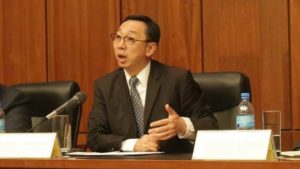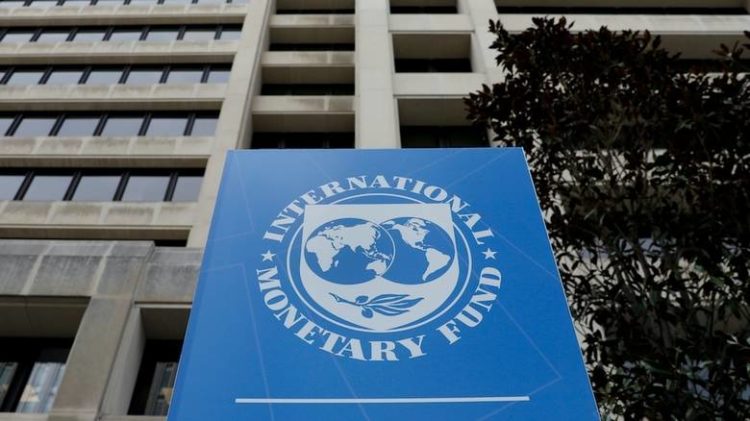Ghana received unexpected good news, from an unexpected source, over the weekend as the International Monetary Fund announced that its Executive Board had approved a Rapid Credit Facility of US$ 1 billion to help the country fight the coronavirus outbreak. This amounts to close to GHc5.5 billion at current exchange rates, which is about GHc2.35 billion more than the GHc3.145 billion, Finance Minister Ken Ofori-Atta had told Parliament Ghana was expecting from the Fund during the presentation of a new fiscal framework to the legislature for its approval a couple of weeks ago.
It is still unclear how and why Ghana is getting considerably more than it expected – the IMF announcement does not address that issue – but government will happily take it as it seeks to bridge a GHc11.4 billion financing gap arising from a GHc9.5 billion increase over the fiscal deficit planned in the original 2020 budget. An array of new fiscal measures – ranging from the innovative to the desperate – have received parliamentary approval being aimed at cutting an inevitably grossly enlarged fiscal deficit from GHc30.2 billion (7.8 percent of Gross Domestic Product) to a more manageable 6.6 percent of GDP.
It is also still unclear how government intends to use its extra debt inflow. The extra money could further reduce the projected fiscal deficit by 0.6 percent (to 6.0 percent). Alternatively it could be used to replace some other fiscal measures planned by government, such as the use of the Ghana Heritage Fund which has been vehemently opposed by the parliamentary minority.
The International Monetary Fund (IMF) has approved the disbursement of SDR 738 million, equivalent to about US$1 billion to be drawn under the Rapid Credit Facility (RCF).
In a statement issued on April 13, 2020, the IMF stated that the disbursement is aimed at addressing the urgent fiscal and balance of payments needs of the country.
“The disbursement will help address the urgent fiscal and balance of payments needs that Ghana is facing, improve confidence, and catalyze support from other development partners,” the statement said.
Given that the COVID-19 pandemic is already impacting country severely, the Fund noted that, the country’s growth is slowing down, whereas financial conditions have tightened, and the exchange rate currently remains under pressure.
“The COVID-19 pandemic is impacting Ghana severely. Growth is projected to slow down, financial conditions have tightened, and the exchange rate is under pressure. The budget deficit is projected to widen this year given expected lower government revenues and higher spending needs related to the pandemic. The Fund’s emergency financial assistance under the Rapid Credit Facility will help address the country’s urgent financing needs, improve confidence, and catalyze support from other international partners,” Mr. Tao Zhang, Deputy Managing Director and Chair of the Executive Board of IMF said in a statement.
He noted that the authorities’ response has been timely, targeted, and proactive, focused on increasing health and social spending to support affected households and firms.
Earlier this month, the World has provided US$100 million to the country to assist in tackling the COVID-19 pandemic, which will be in short, medium and long-term support.
The Bank of Ghana has recently taken steps of its own to ensure adequate liquidity, preserve financial stability, and mitigate the economic impact of the pandemic, while allowing for exchange rate flexibility to preserve external buffers.
The Fund has assured that it will continue to monitor Ghana’s situation closely and stands ready to provide policy advice and further support as needed.
“The uncertain dynamics of the pandemic creates significant risks to the macroeconomic outlook. Ghana continues to be classified at high risk of debt distress. The authorities remain committed to policies consistent with strong growth, rapid poverty reduction, and macroeconomic stability over the medium-term,” Mr. Zhang stated.
He further said, “Additional support from other development partners will be required and critical to close the remaining external financing gap and ease budget constraints.”

Government will now have to decide how it wants to use the extra debt finance coming from the IMF. It is most likely however that government will keep the extra amount in reserve to prop up any shortfalls from its other measures. While it has complete control over measures such as the reduction in the cap on the Ghana Stabilization Fund, from GHc300 million to GHc100 million and its proposed use of part of the GHc591.1 million in the Ghana Heritage Fund, other measures such as World Bank assistance to the tune of GHc1,716 billion, and deferment of payments on non-marketable debt instruments issued by the Bank of Ghana will depend on the cooperation of counterparties, which is not guaranteed.











